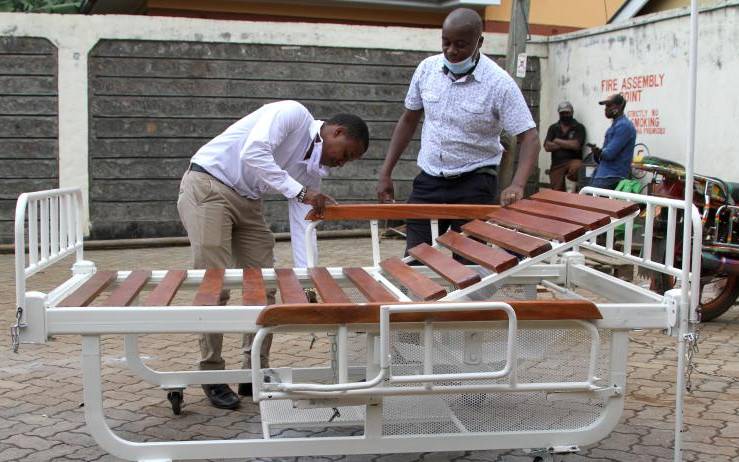Mungai Gathogo (left) and Joseph Kamau, skilled welders based in Githunguri, explain the different features of their viral unique locally made hospital bed, during an interview with Standard, on Monday, July 13 2020. The two, are one of few artisans who have come out to showcase their skills amid concerns over lack of isolation facilities in counties.[David Njaaga, Standard]
